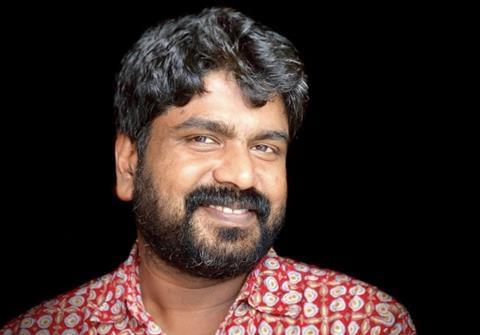
A “sea change” happened at this year’s Film Bazaar in Goa, India, according to attendees, as global successes of Indian titles brought about a new excitement for international collaboration.
It was also the first year that cash prizes were given out at the co-production market with the top prize of $10,000 going to Payal Sethi’s The Disappearing Flower. Two other prizes of $5,000 each went to Sanju Surendran’s Fishers Of Men and Pranjal Dua’s All Ten Heads Of Ravana.
“[The cash prizes] worked really well because it helped us to attract stronger projects,” explains former Cannes Marche director Jerome Paillard, who served as an advisor to Film Bazaar for the first time this year. “At that level of development, it’s some money that we can really add the projects to help them go further.”
International collaboration
This year’s edition welcomed more than 1,500 international guests, a 20% increase from last year, with delegates coming from 31 countries – also showing greater diversity compared to last year.
Australian producer Susan Schmidt, who was invited as part of the Bazaar and IFFI Goa’s country of focus, says she is leaving Film Bazaar with “two certainties” of co-productions and “potentially” a few more projects in the works as well.
“I already have a lot on my slate so was really not anticipating too much,” Schmidt says. “But the meetings have been non-stop and there are a lot of films [I’ve found] with universal appeal.”
While the UK presence at Film Bazaar was small, that didn’t discourage collaboration, according to Michael Yates, sales and acquisitions director at Metro International.
“It feels like there’s a real sea change towards UK-Indian work and people here are really interested in collaborating with the UK a lot more because of key marquee projects,” Yates said, referring to the success of Cannes titles Santosh and Sister Midnight.
Genre is king
Oscar-winning producer Guneet Monga of Sikhya Entertainment was at the market to participate in several panels and eye up the co-production market offerings with her 14-strong team. As well as announcing a sequel to the action hit Kill, Monga says there a “couple of” projects she is keen to take on from the market because of their genre elements.
“When drama breaks out, it breaks out on a whole other level, but genre films travel more,” she told Screen. “There’s a very dedicated genre audience around the world and that’s a way of soft entering the markets.”
“The projects in the market that I’ve seen as having the most potential are the ones with those genre elements,” Yates agreed. “They seem to be the most interesting projects and the language doesn’t really matter as much so it makes more sense for a co-production.”
Talking points
The extraordinary global success of Payal Kapadia’s All We Imagine As Light – which won the Grand Prix in Cannes – was a popular topic of conversation among attendees with many seeing it as a pillar of light for more Indian films breaking out internationally. Closer to home, however, concerns still remained around distribution leaving many independent filmmakers falling through the cracks.
“There has been a culture of selling the entire world rights in India so you are literally only servicing that diaspora,” Monga explained. “Breaking that distribution model is something that needs to happen so that more filmmakers can come through.”
“We’ve been able to come away with a lot of choices,” noted Fishers Of Men director Surendran of his meetings at Film Bazaar. “So it has ultimately been very effective. The people we’ve interacted with have all been fantastic. Very transparent and, at the same time, very down to earth. It has been an extremely fruitful experience for us.”

























No comments yet